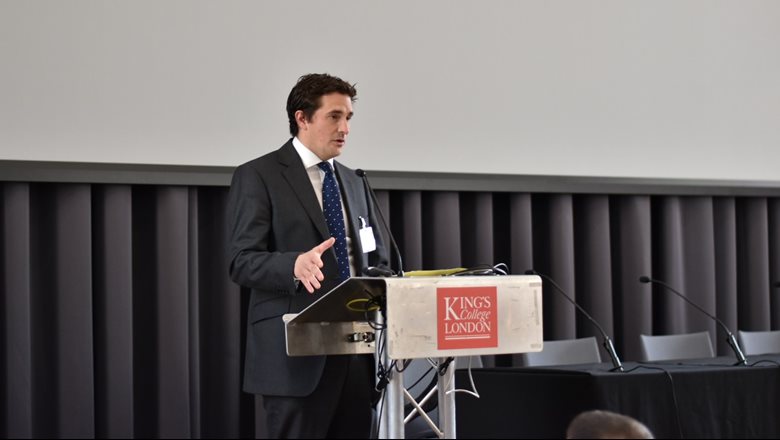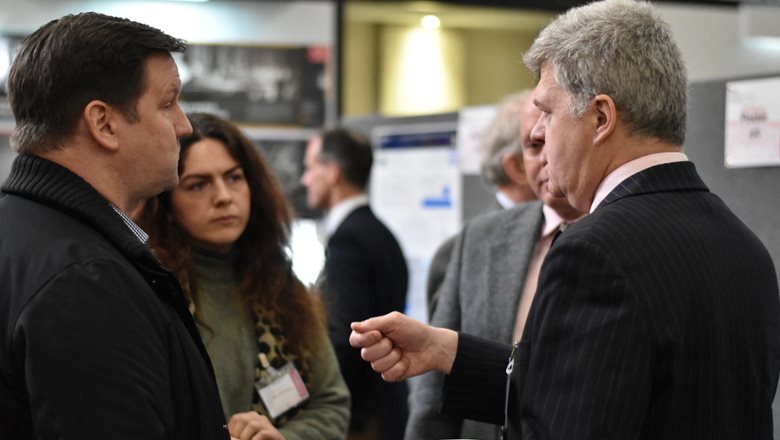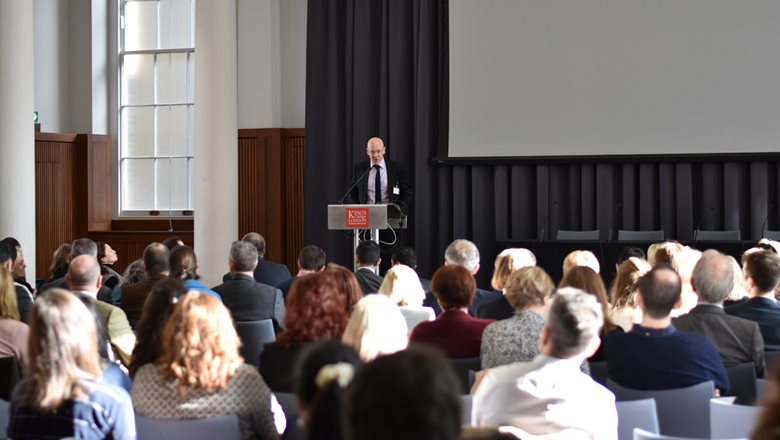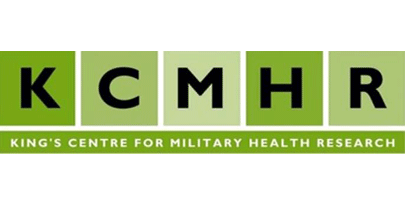Veterans' Mental Health Conference 2020: Bridging the Gap
The sixth Veterans’ Mental Health Conference took place today at King’s College London today (12th March 2020). The annual event provides a platform for leading academics, charities and policy makers to present the latest research and insight on military mental health and to share knowledge in this crucial area.

The opening address for the conference was given by Johnny Mercer, Minister for Defence People and Veterans. Ahead of the conference he said: ‘As a former soldier myself, I have seen first-hand the need to break down the stigma and negative preconceptions around mental health. I am determined to do all I can to help improve the health and wellbeing of the millions of our brave veterans and their families.
‘We have made significant progress around mental health, but we have a lot more work to do which is why this conference is so important in giving academics, charities and policy makers a platform to collaborate, share knowledge and look at ways we can best support our military community.’
We have made significant progress around mental health, but we have a lot more work to do which is why this conference is so important in giving academics, charities and policy makers a platform to collaborate, share knowledge and look at ways we can best support our military community– Johnny Mercer, Minister for Defence People and Veterans
Organised by King’s Centre for Military Health Research (KCMHR) and sponsored by the Forces in Mind Trust (FiMT), the title of this year’s conference is ‘Bridging the Gap’, reflecting the continuing need to deliver research to improve our understanding of the mental health needs of veterans and to use this research to develop therapeutic approaches.
Structured into four sessions, the presentations cover a wide range of topics. Among these Professor Nav Kapur from the University of Manchester discusses our current knowledge about suicide in veterans and its prevention, alongside plans for a new study to investigate the rate of suicide after people leave the armed forces and the possible antecedents of these deaths.
Dr Neil Kitchiner, Director of Veterans’ NHS Wales presents the results of a recent study investigating the use of an innovative approach called 3MDR that applies virtual reality and a treadmill to help veterans with treatment-resistant PTSD. Funded by FiMT the report of the research will be disseminated at the conference.
In the afternoon Dr Sharon Stevelink from KCMHR, Helen Helliwell, Director Armed Forces People Policy, and David Wiseman, Head of Programmes from the Royal Foundation speak about the HeadFIT project which is a mental fitness initiative developed by the Ministry of Defence and the Royal Foundation. HeadFIT aims to help those in the military to manage good mental fitness and KCMHR are leading on the evaluation of the project.

By working collaboratively and closely with everyone involved we really hope to ‘bridge the gap’ in terms of improving our knowledge of veteran mental health and using this to develop effective approaches to improve the lives of military personnel, serving and retired, and their families.– Professor Neil Greenberg, King's Centre for Military Health Research (KCMHR)
KCMHR is the leading civilian UK centre of excellence for military health research. Co-directed by Professor Sir Simon Wessely and Professor Nicola Fear, KCMHR draws on the experience of a multidisciplinary team, many of whom feature in this year’s conference, including Dr Deidre MacManus, Dr Laura Palmer, Dr Sharon Stevelink, and Professor Neil Greenberg.
Professor Greenberg, who closes the conference today, said: ‘As in previous years it is fantastic to bring together colleagues in academia, the military, the public sector and service charities under one roof to discuss the innovative and impactful research that is happening across the UK and further afield in this area.
‘By working collaboratively and closely with everyone involved we really hope to ‘bridge the gap’ in terms of improving our knowledge of veteran mental health and using this to develop effective approaches to improve the lives of military personnel, serving and retired, and their families.’
Air Vice-Marshal Ray Lock CBE, Chief Executive of the Forces in Mind Trust, said: ‘This conference allows researchers to showcase their excellent work on the mental health issues most effecting ex-Service personnel, as well as share this with key stakeholders who can positively impact this area. This is the fifth such conference that the Forces in Mind Trust has sponsored. Every year has demonstrated how much value can be gained from convening this level of expertise, and subsequent collaboration between academics and stakeholders. We are sure that previous years’ successes will be replicated and look forward to seeing this conference’s positive impact.’

This article was reproduced from King's College London News. See the original article here.
